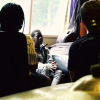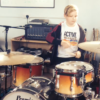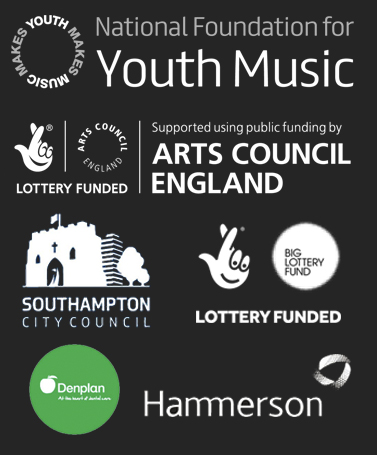My name is Olly Lewis and I work for SoCo Music Project, a local organisation that specialises in improving music provision within the county of Hampshire. In this blog I will be exploring the similarities and differences between the inclusion of Music in the National Curriculum and the presence of music in extra curricular activities. I will challenge how music outside of the classroom can in turn compliment the education system and how and why I believe it is of pivotal importance that extra curricular activities are encouraged and accommodated whenever possible if students are to seriously pursue creative pathways.
With the constant uprising of funding cuts, governmental changes and a shortage of teachers, creative subjects are suffering considerably due to the limitations of the National Curriculum. Whilst core subjects will forever remain at the top of the schooling hierarchy other subjects such as Music continue to be left on the substitute bench. I even have reason to believe that a school near my hometown of Bristol has recently removed Music from their education scheme altogether. Perhaps one of the most concerning changes as of recent has been the elimination of the levelling system. Although this system was an accurate and relative measurement of assessment it came with its flaws too. However, my biggest concern surrounding the abolition of this system is the requirement of every school to enforce it’s own replacement assessment criteria. Not only does this put additional strain on educational staff and restrict the time that they have to allocate to their specialist subjects and their students but it also means that schools will find it harder to compare their results with other schooling institutions. With something as subjective as Music, this can only be an issue.
With regards to Music, the National Curriculum is proving to be able to offer less and less. Even with the best teacher available, if that member of staff is the sole representative of the department and is being stretched too thin, only through seeking additional music provision outside of the classroom will students be able to explore and pursue music. Taking my own personal experience into account, as a Bristol-based teenager I was actively involved in a local youth music organisation called Bristol REMIX. Although my Music education was always beneficial with particularly supportive members of staff throughout every stage of my education (school, college and University), it was through my involvement with REMIX that I was really able to discover my own musical voice.
Through the provision of Bhangra workshops, Cuban ensembles, singing/songwriting workshops and performances at venues such as the Royal Albert Hall (BBC Young Proms), my interest and desire for a future in Music blossomed. In turn, this improved my performance in the classroom (not only in Music) and boosted my confidence considerably as I had formed a band with some of my peers and I was performing regularly in and around my local music scene. If my music education and upbringing relied solely on the limited amount of classroom hours available to me, it may have taken me much longer to discover my love for music or perhaps I never would have. Now 24 years old and employed by SoCo Music Project, I am working with a company that offer similar provision to what I grew up with and I am blessed by having the responsibility of delivering similar workshops to future generations to come. It is this opportunity for me to pay it forward that has always fuelled my passion for the work we do; these opportunities are much more important than most people will ever realise.
Having done plenty of work to strengthen the music provision in schools it is great to see just how this work can compliment the National Curriculum. So long as there is a budget, these activities can facilitate the musical welfare of students. If this is of particular focus, students can write and express themselves as they need to, they can record and share their progress with their loved ones, they can learn and explore the ways in which music functions not only on manuscript but on an emotional level. The only limitation of such provision is that it is harder to standardise and to assess the quality of the content. However, should art ever be restricted or confined in any way? Perhaps the freedom and flexibility of these activities is what allows the students to realise their artistic potential.
To conclude, the National Curriculum is ever changing and due to on-going limitations, the provision of creative subjects is always in jeopardy. This has a directly negative influence on the artistic freedom of musicians and interferes with the classroom and teachers’ capability of facilitating creativity. If a relationship with music is to develop outside of the classroom then the provision of extra curricular music activities is almost essential. This provision can be personalised and offers plenty of flexibility. With an art form that is so freely expressive, intricate and arguably spiritual, versatility in delivery is something that should only be sought after, for we all have individual voices.






